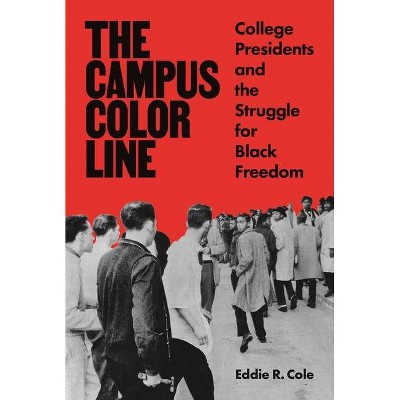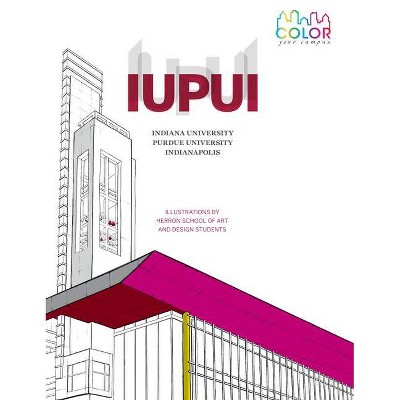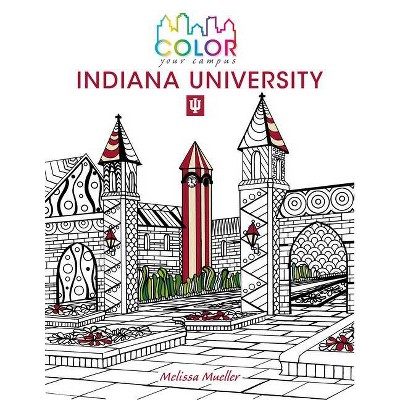The Campus Color Line - by Eddie R Cole (Hardcover)

Similar Products
Products of same category from the store
AllProduct info
<p/><br></br><p><b> About the Book </b></p></br></br>"This book unfolds the untold history of one of the United States' most notable civil rights crises from the perspective of academic leaders"--<p/><br></br><p><b> Book Synopsis </b></p></br></br><p><b>A stunning and ambitious origins story.--Ibram X. Kendi, National Book Award-winning and #1 <i>New York Times</i>-bestselling author</b> <p/><b>The remarkable history of how college presidents shaped the struggle for racial equality</b></p><p><br>Some of America's most pressing civil rights issues--desegregation, equal educational and employment opportunities, housing discrimination, and free speech--have been closely intertwined with higher education institutions. Although it is commonly known that college students and other activists, as well as politicians, actively participated in the fight for and against civil rights in the middle decades of the twentieth century, historical accounts have not adequately focused on the roles that the nation's college presidents played in the debates concerning racism. Based on archival research conducted at a range of colleges and universities across the United States, <i>The Campus Color Line</i> sheds light on the important place of college presidents in the struggle for racial parity. <p/>Focusing on the period between 1948 and 1968, Eddie Cole shows how college presidents, during a time of violence and unrest, strategically, yet often silently, initiated and shaped racial policies and practices inside and outside of the educational sphere. With courage and hope, as well as malice and cruelty, college presidents positioned themselves--sometimes precariously--amid conflicting interests and demands. Black college presidents challenged racist policies as their students demonstrated in the streets against segregation, while presidents of major universities lobbied for urban renewal programs that displaced Black communities near campus. Some presidents amended campus speech practices to accommodate white supremacist speakers, even as other academic leaders developed the nation's first affirmative action programs in higher education. <p/><i>The Campus Color Line</i> illuminates how the legacy of academic leaders' actions continues to influence the unfinished struggle for Black freedom and racial equity in education and beyond.</p><p/><br></br><p><b> Review Quotes </b></p></br></br><br>Winner of the Frederic W. Ness Book Award, Association of American Colleges & Universities<br><br>Winner of the AESA Critics' Choice Book Award, American Educational Studies Association<br><br>Winner of the ASHE Outstanding Book Award, Association for the Study of Higher Education<br><br><i>The Campus Color Line</i> is enlightening for advanced students and scholars interested in the study of higher education history.-- "Choice Reviews"<br><br>Cole artfully makes the case that higher education played a central role in shaping one of the most significant social movements in American history. . . . <i>The Campus Color Line</i> is essential not just for filling this gap in the historical literature or because it shows another way that universities influence society. It is essential because it challenges those of us in higher education, both educators and administrators, to be mindful of our actions and, above all else, to do more.<b>---Lucian Bessmer, <i>Harvard Educational Review</i></b><br><br>Cole's ability to connect college presidential challenges, racial turmoil, and political climate make this work groundbreaking. This is especially insightful since Cole takes the approach of focusing his work on the dominant white community which had their own way of working against the desegregation within the confines of American society.<b>---Jesse R. Ford & Kaleb L. Briscoe, <i>Teachers College Record</i></b><br><br>Eddie R. Cole brilliantly narrates the untold stories of America's college leaders and their many contributions toward the decolonization of higher education. . . . Cole's book is a testament to the difficulty of these challenges faced by leaders, and it offers a guide for how to overcome them--if a leader knows how to pay close attention to our past and aims not to repeat the mistakes in the future.<b>---Mary F. Howard-Hamilton & Kelsey Bogard, <i>Journal of College Student Development </i></b><br><br><i>The Campus Color Line</i> should be required reading for academics or anyone interested in how issues of racial justice became enmeshed in higher education.<b>---E. Masghati, Ph.D., <i>International Social Science Review</i></b><br><br>In this intensely researched narrative, Cole focuses on one institutional president--as a member of the wider community of presidents--per chapter and examines how he or she worked within the circumstances of their colleges. Perhaps most importantly, the author explores the silent networks of Black college presidents whose efforts slipped under the radar.-- "Kirkus Reviews"<br><br>This extensively researched, well-written examination of racism, integration, and violence in the postsecondary environment is a major contribution to the field of higher education.<b>---Jacqueline Snider, <i>Library Journal</i></b><br><p/><br></br><p><b> About the Author </b></p></br></br><b>Eddie R. Cole </b>is associate professor of higher education and organizational change at the University of California, Los Angeles. Twitter @EddieRCole
Price History
Cheapest price in the interval: 29.49 on October 23, 2021
Most expensive price in the interval: 29.49 on November 8, 2021
Price Archive shows prices from various stores, lets you see history and find the cheapest. There is no actual sale on the website. For all support, inquiry and suggestion messages communication@pricearchive.us



![Eddie and the Cruisers/Eddie and the Cruisers II: Eddie Lives! [Blu-ray] [1989]](https://pisces.bbystatic.com/image2/BestBuy_US/images/products/5496/5496229_so.jpg)
















